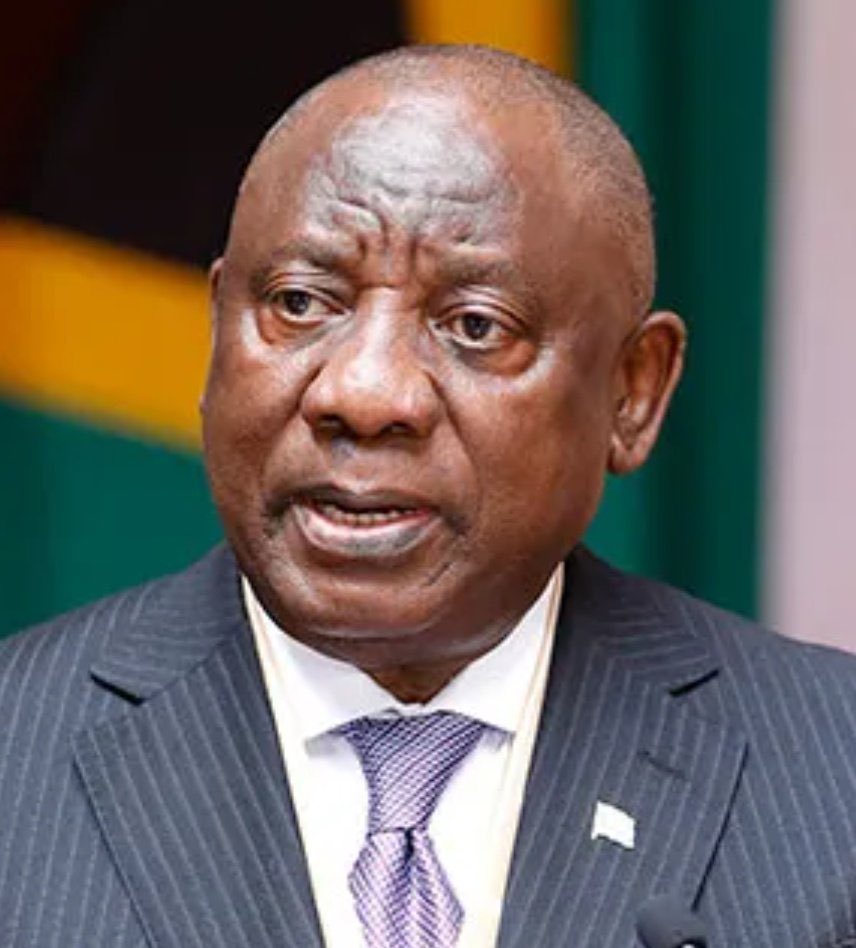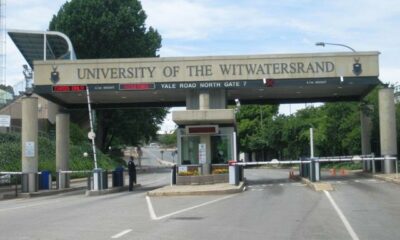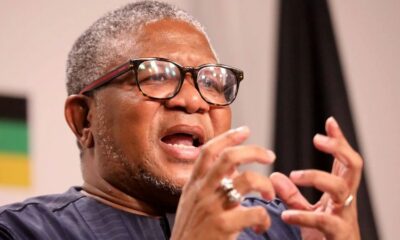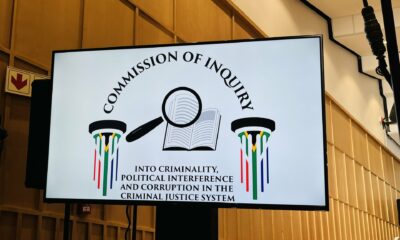News
Ramaphosa’s Last Stand: Inside the Power Struggle Blocking His Surprise Exit

Ramaphosa’s Last Stand? Inside the Quiet Tug-of-War Keeping the President in Place
For weeks, whispers inside Luthuli House suggested President Cyril Ramaphosa might be nearing the end of his political road. But few expected that he would consider walking away before the ANC reaches its next major test, the National General Council (NGC). And even fewer expected his closest allies to be the ones blocking the exit.
Yet this is exactly where the ANC finds itself: a president quietly signalling fatigue, and a faction of loyalists insisting he stay put, fearing the party cannot survive the turbulence his departure would unleash.
A President Ready to Bow Out and a Party Caught Napping
According to insiders, Ramaphosa had floated the idea of resigning shortly after the recent G20 summit. It would have been a dramatic moment, a sudden exit from the man once positioned as the stabiliser after years of internal turmoil.
But instead of clearing the path for new leadership, the ANC’s upper ranks recoiled.
“Without Cyril, things could get worse,” one senior figure whispered. “The voters are already uneasy. A resignation now would look like more infighting. It would sink us even further.”
In a country where political fatigue is at an all-time high and trust in government is fragile, Ramaphosa’s allies believe a premature departure would intensify voter apathy ahead of local government elections. South Africans, they argue, have grown weary of the ANC’s leadership wars, from the Mbeki recall, to the Zuma battles, to today’s quiet factional manoeuvres.
Ramaphosa’s supporters want him to finish his term in December 2027 and, in doing so, break the decade-long pattern of recalled ANC presidents.
Opponents Plot a Leadership Reset at the NGC
But not everyone in the party agrees.
A rival faction, emboldened by the ANC’s devastating drop from 57% in 2019 to 40% in last year’s national election, believes the NGC should mark the beginning of the post-Ramaphosa era.
Some are pushing for the ANC’s entire National Executive Committee (NEC) to be dissolved and replaced with an interim task team, a nuclear option usually reserved for provinces in deep crisis, not the national structure.
The catch?
The NGC has no authority to elect a new president. Traditionally, it reviews policy and assesses the party’s direction, not leadership. But this hasn’t stopped those hungry for a reset from trying to shape the narrative before the next elective conference.
Experts like political analyst Prof Ntsikelelo Breakfast warn that the ANC’s slide is far from over, with or without Ramaphosa. He predicts the party will continue losing ground unless it confronts deeper structural and ethical failings.
The Succession Problem No One Wants to Name
Inside the movement, the leadership question has become more sensitive than usual.
Deputy President Paul Mashatile, the natural successor in theory, is viewed suspiciously by many due to a string of corruption allegations. “Better the devil you know,” one insider remarked, a telling summary of the party’s mood.
Names being whispered as alternatives include:
-
Gwede Mantashe – respected by some, divisive for others
-
Fikile Mbalula – energetic but polarising
-
Panyaza Lesufi – gaining prominence in Gauteng
-
Nomvula Mokonyane – already signalling her ambition
-
Naledi Pandor – respected internationally, though not yet campaigning
But the truth is simpler: there is no clear successor with enough support across all factions. And that vacuum is a large part of why Ramaphosa’s allies are holding the line.
The G20 Boost and Why It Matters Politically
Ramaphosa’s recent G20 performance unexpectedly reshaped internal perceptions.
He was praised for championing Africa and the global south, and for steering South Africa’s position without controversy, a sharp contrast to years of diplomatic missteps under previous administrations. His role in keeping the Government of National Unity stable also worked in his favour. Many ANC members fear that removing him could trigger chaos both inside the party and within the GNU.
On social media, reactions have been split.
Some South Africans mock the idea of ANC “renewal” under Ramaphosa, arguing that the party is clinging to the status quo. Others say changing leadership now is reckless at a time when the country’s political landscape is volatile and coalition politics is still maturing.
A Party in Search of Itself
The drama surrounding Ramaphosa’s future speaks to a much deeper identity crisis within the ANC.
Once the dominant political force in South Africa, the party has been bleeding support since the Zuma era and Ramaphosa’s arrival did little to reverse the trend. Corruption scandals, internal battles, and severe service delivery failures have pushed many voters toward the opposition or into outright disengagement.
The NGC is meant to be a mid-term reflection point, but it is now shaping up to be something far more consequential:
a battle over whether the ANC’s renewal project continues under Ramaphosa or collapses under new leadership manoeuvres.
For now, the president’s allies are keeping the door firmly shut on any early resignation. But the pressure is building and the ANC’s future may depend on how long that door stays closed.
{Source: The Citizen}
Follow Joburg ETC on Facebook, Twitter , TikTok and Instagram
For more News in Johannesburg, visit joburgetc.com



























